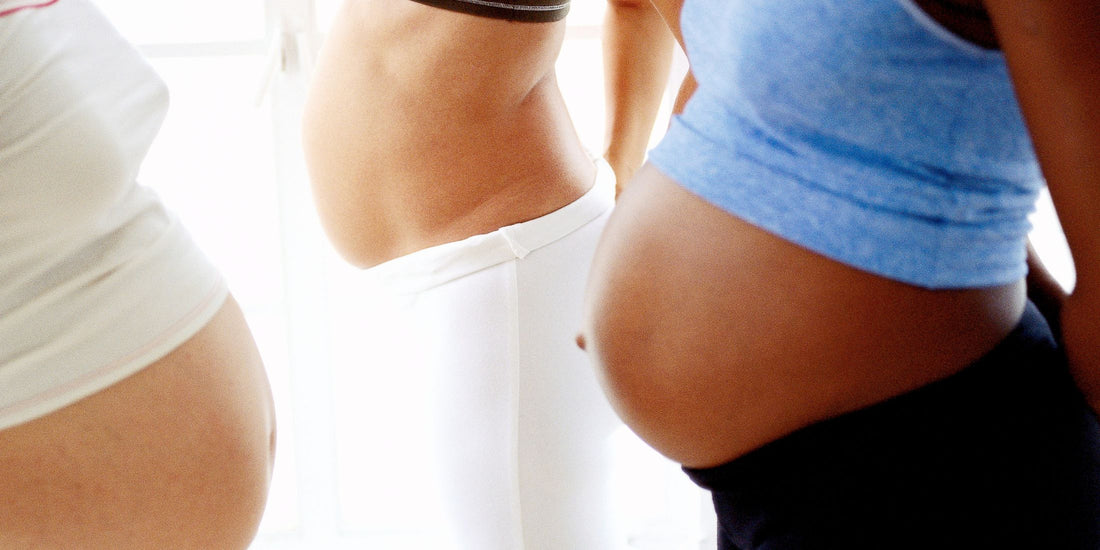Pregnancy is a magical time, but it also comes with its fair share of challenges. From nausea and fatigue to back pain and swelling, many expecting mothers experience discomfort as their bodies adjust to nurturing new life. The good news is that there are ways to find relief from common pregnancy symptoms, helping you enjoy your journey to motherhood a little more comfortably. Here are some tips for soothing some of the most common pregnancy symptoms.
1. Morning Sickness and Nausea Relief
Nausea, often called morning sickness (though it can strike any time of day), is one of the earliest and most common pregnancy symptoms. Here are a few ways to alleviate it:
- Small, Frequent Meals: Instead of three large meals, eat smaller meals throughout the day. This helps keep your stomach settled and prevents it from being empty, which can worsen nausea.
- Ginger and Peppermint: Ginger tea, ginger chews, or ginger ale are natural nausea fighters. Peppermint tea or candies can also help soothe your stomach.
- Stay Hydrated: Sipping on water throughout the day can reduce the intensity of nausea. If plain water isn’t appealing, try adding a slice of lemon or cucumber for flavor.
- Bland Foods: Foods like crackers, toast, and bananas are easy on the stomach and can help absorb stomach acid.
2. Fatigue and Energy Boosts
Feeling tired is a natural part of pregnancy, especially in the first and third trimesters. While you may not be able to eliminate fatigue entirely, these strategies can help:
- Rest When You Can: Listen to your body. Take naps or short breaks when you feel exhausted, even if it's just for 15 minutes.
- Stay Active: Light exercise like walking, prenatal yoga, or swimming can boost your energy levels and improve circulation.
- Eat Energizing Snacks: Keep healthy snacks like nuts, fruits, and yogurt on hand. Foods rich in protein and complex carbs provide long-lasting energy.
3. Back Pain and Body Aches Relief
As your belly grows, extra strain is placed on your back, leading to discomfort. Here’s how to ease the tension:
- Prenatal Massage: A gentle massage can relieve tense muscles and improve circulation. Always seek a massage therapist trained in prenatal care.
- Warm Baths: A warm (not hot) bath can soothe sore muscles. You can also use a heating pad on a low setting for localized relief.
- Supportive Pillows: Sleeping with a body pillow or wedge under your belly can help support your back while resting.
- Maintain Good Posture: Stand and sit up straight to avoid slumping, which can exacerbate back pain.
4. Swollen Feet and Legs Relief
Swelling, especially in the legs and feet, is common during pregnancy due to increased fluid retention. Here's how to manage it:
- Elevate Your Legs: Try to rest with your feet elevated as much as possible to reduce swelling.
- Wear Compression Socks: Compression socks help promote circulation and reduce fluid buildup.
- Stay Hydrated: Drinking water can help flush out excess fluids and reduce swelling.
- Avoid Standing for Long Periods: If you need to stand, take breaks to sit down and elevate your feet.
5. Heartburn and Indigestion Relief
Heartburn is a frequent complaint in pregnancy as hormonal changes affect digestion. To prevent and manage heartburn:
- Eat Small, Frequent Meals: Overeating can exacerbate heartburn, so opt for smaller meals more often.
- Avoid Trigger Foods: Spicy, greasy, or acidic foods can trigger indigestion and heartburn. Pay attention to what worsens your symptoms and avoid those foods.
- Stay Upright After Meals: Avoid lying down immediately after eating. Sitting upright for at least an hour post-meal can help prevent acid reflux.
- Sleep with Your Head Elevated: Sleeping with your upper body slightly elevated can help reduce nighttime heartburn.
6. Skin Changes and Itchiness Relief
Pregnancy hormones can lead to dry, itchy skin or conditions like stretch marks. To keep your skin comfortable:
- Moisturize Regularly: Apply a rich moisturizer or body oil, especially on areas that are prone to stretching, such as your belly, hips, and thighs.
- Use Gentle Skincare: Avoid harsh soaps and skincare products. Opt for fragrance-free, natural products that soothe irritation.
- Stay Hydrated: Drinking plenty of water will help keep your skin hydrated from the inside out.
7. Constipation and Digestive Relief
Pregnancy hormones can slow down digestion, leading to constipation. Here’s how to keep things moving:
- Eat Fiber-Rich Foods: Incorporate high-fiber foods such as fruits, vegetables, whole grains, and legumes into your diet.
- Stay Active: Gentle physical activity like walking can stimulate digestion and prevent constipation.
- Drink Plenty of Water: Staying hydrated helps soften stool and makes it easier to pass.
- Consider a Stool Softener: If necessary, consult your doctor about safe stool softeners or fiber supplements.
8. Sleep Discomfort and Insomnia Relief
Sleep can be elusive during pregnancy due to discomfort and hormonal changes. Improve your sleep quality with these tips:
- Establish a Bedtime Routine: Create a calming routine before bed, such as reading, taking a warm bath, or practicing relaxation techniques.
- Sleep on Your Side: Sleeping on your left side improves blood flow to your baby. Use pillows to support your belly and legs for added comfort.
- Limit Caffeine: Avoid caffeine in the afternoon and evening to improve sleep quality.
Pregnancy is a time of change, excitement, and sometimes discomfort. By incorporating these practical tips into your daily routine, you can find relief from common pregnancy symptoms and enjoy a more comfortable experience as you prepare to welcome your little one. Always remember to consult with your healthcare provider before trying new remedies or making significant changes to your routine to ensure the safety of both you and your baby.






